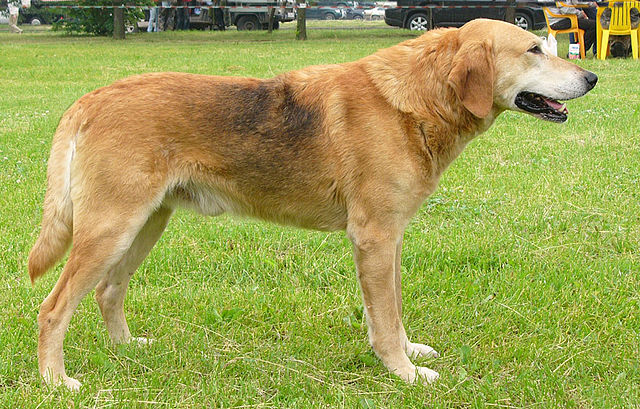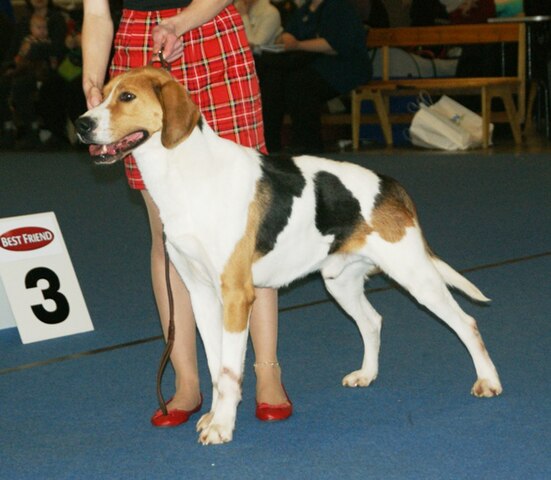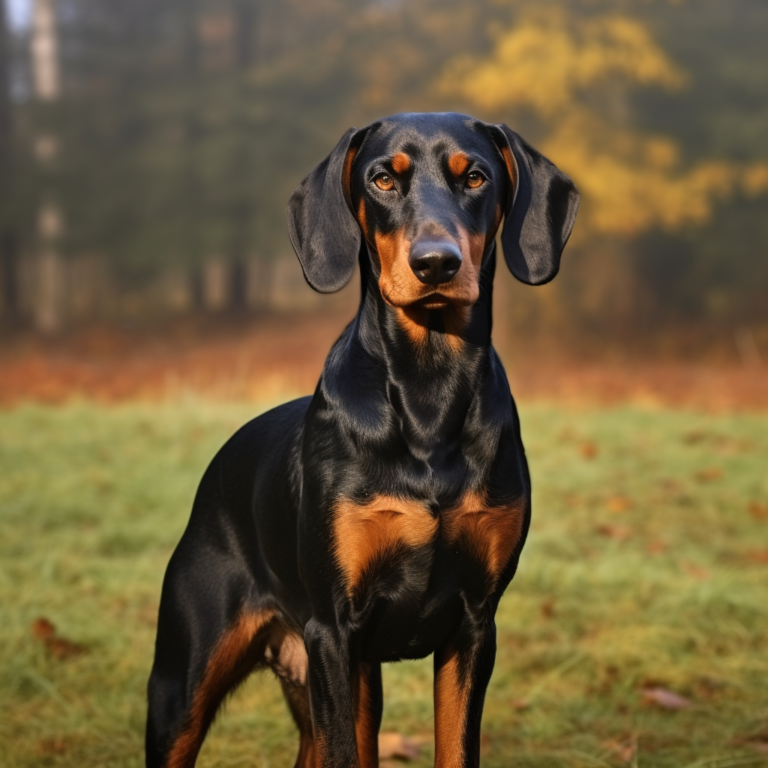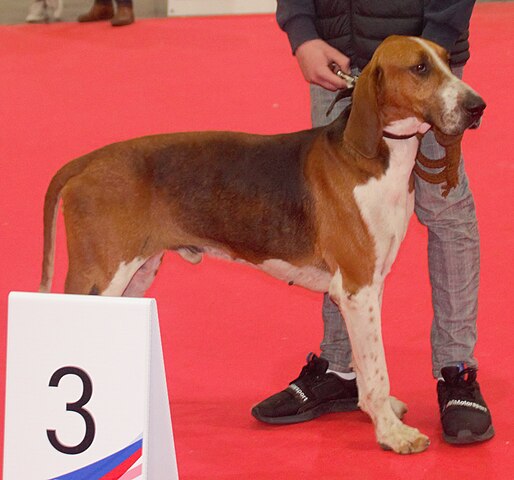The Russian Hound was created in the late 1700’s, and was frequently used to hunt alongside Borzoi in Russia. This scenthound would find and flush out the prey, and the Borzoi would then chase it down! Despite having a short coat, this hound was created to easily withstand the harsh cold of the winters and will effortlessly hunt even in thick snow! In 1925, the first official standard was created and although they are not recognized by the FCI (or the AKC for that matter), they are recognized in Russia.
The Russian Hound can make an enjoyable companion in the right home despite being bred as a hunter. The breed’s vigilant nature, great stamina and strong sense of smell means he excels in tracking and chasing game however after a good hunt he enjoys hanging out with his human family! This is a social, intelligent and loyal hound that is calm and well-behaved at home provided he is given enough exercise. Like most other scenthounds, he tends to get along swimmingly with other dogs. Take note that he is reserved around strangers and if a new person comes to the door, he may erupt into a musical cacophony of bays and howls!
Because of the high prey drive, a Russian Hound must be kept in a fenced area when off leash in any sort of suburban area to prevent the danger of being hit by a car. Once in “hunt mode”, he can be oblivious to previous training, especially if he catches the scent of something interesting! Despite the requirement of a fence, this breed absolutely must be given plenty of exercise outside of the yard (on leash, please)! An hour a day should be considered the minimum for this athletic, energetic hound. Hiking can be a wonderful source of exercise, but a daily long walk supplemented with playtime in the backyard will do just fine as well.
The Russian Hound is a large breed. The coat is short, thick and rough to the touch with a well-developed undercoat. The main colors include crimson, fawn, wolf, and black/tan – all with or without small white markings. The breed lives an average of 10-12 years and along with being easy to care for in terms of grooming, is also usually quite healthy. This said, large breeds are more prone to developing orthopedic issues which means it’s important to keep them from becoming overweight. Yet another reason for maintaining a good exercise routine!
Although very smart, the Russian Hound can also be stubborn to train. Having high determination is a helpful trait for hunting, but makes things tricky when it comes to teaching the dog obedience. Training sessions should be made to be fun and novel, and the average duration of each session should be kept somewhat short to prevent him from getting bored. As this hound adores affection from his owner, plenty of praise (along with treats and games) can make training enjoyable.



